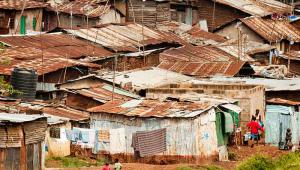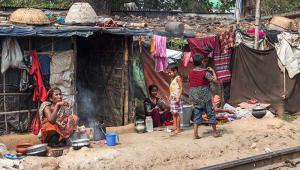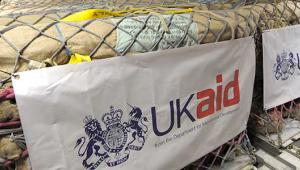This is because of a “perfect storm of slow and unequal economic growth, demographic trends and the depth of current poverty”, a report released by the two organisations last week said.
Researchers predicted that 87 million African children will be born into poverty in each year of the next decade, and warned in their paper of a “worrying gap” between the scale of response needed from various authorities and the scale of the response so far.
Kevin Watkins, chief executive of Save the Children UK, said: “Put simply, the world’s population of children is increasing most rapidly in the region where poverty is coming down most slowly.”
Fertility rates are falling slowly in Africa, with mothers giving birth to between four and five children on average.
By 2030, Africa’s share of global births is projected to be 36%. Today, the number of births in Africa accounts for 29% of the world total whereas its share of the global population is 17%.
But poverty has fallen more slowly in Africa than in other regions, with an estimated 40% of the population living on less than $1.90 a day, the report said.
Watkins explained: “These trends are unfolding in full view of the governments who have pledged to eradicate poverty, yet their response to child poverty has been a case study in inertia.”
The report found “little evidence” of African governments developing suitable policies to address the crisis, and also criticised the International Monetary Fund, World Bank and other donor organisations for “failing to put child poverty at the centre of their agendas”.
Watkins said that child poverty by itself is “an affront to basic rights and equal opportunity”, but it is also a “guaranteed route to failure” for a host of other development goals, including health, gender equality and education.
He said: “The most effective weapon to combat this is redistributive economic growth, underpinned by progressive taxation and more equitable public spending to reach the most disadvantaged children.”
The research was based on World Bank poverty figures, which showed in 2015 more than half of all the ‘extreme poor’ live in Sub-Saharan Africa. It also used UN population data and household survey data on fertility.













